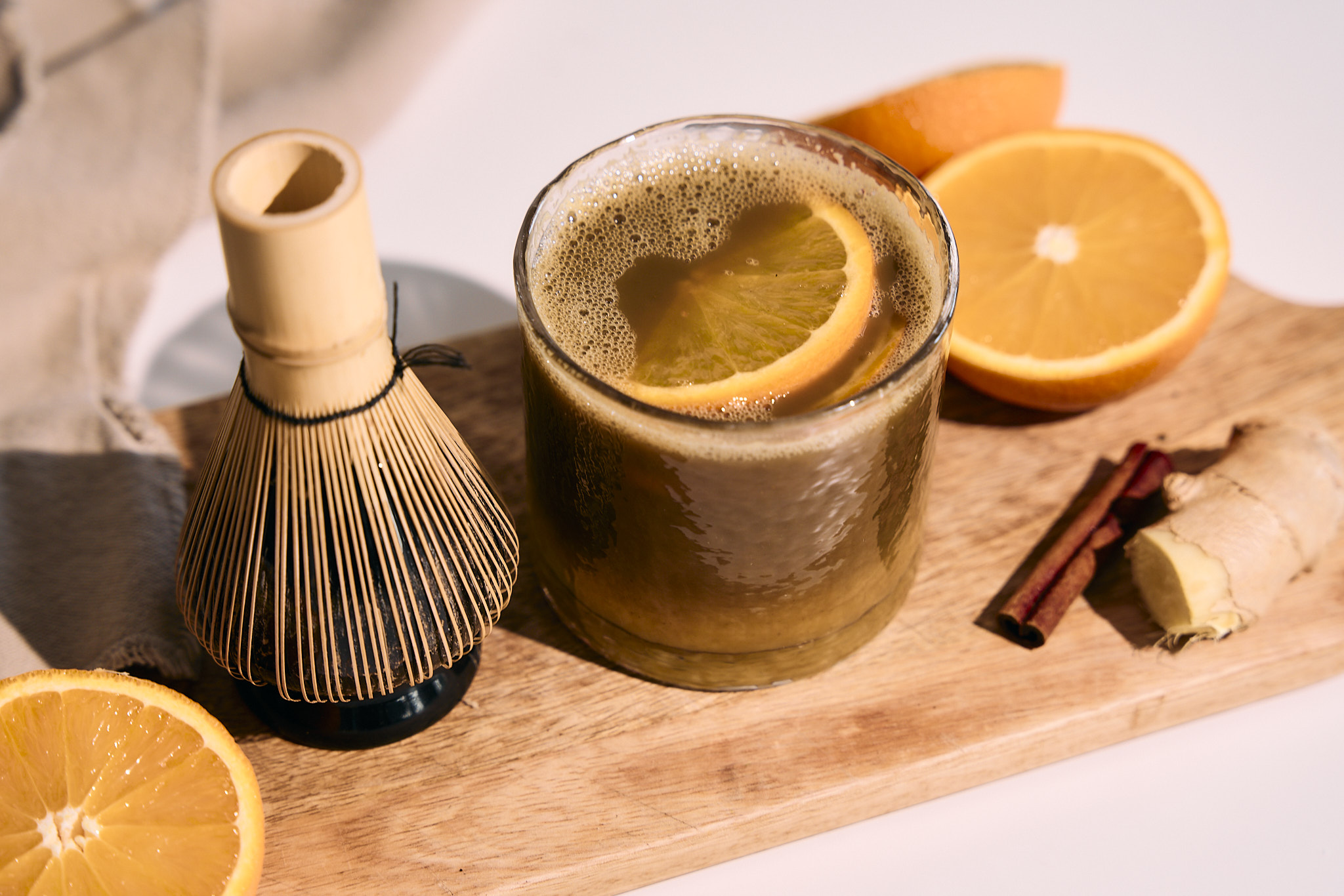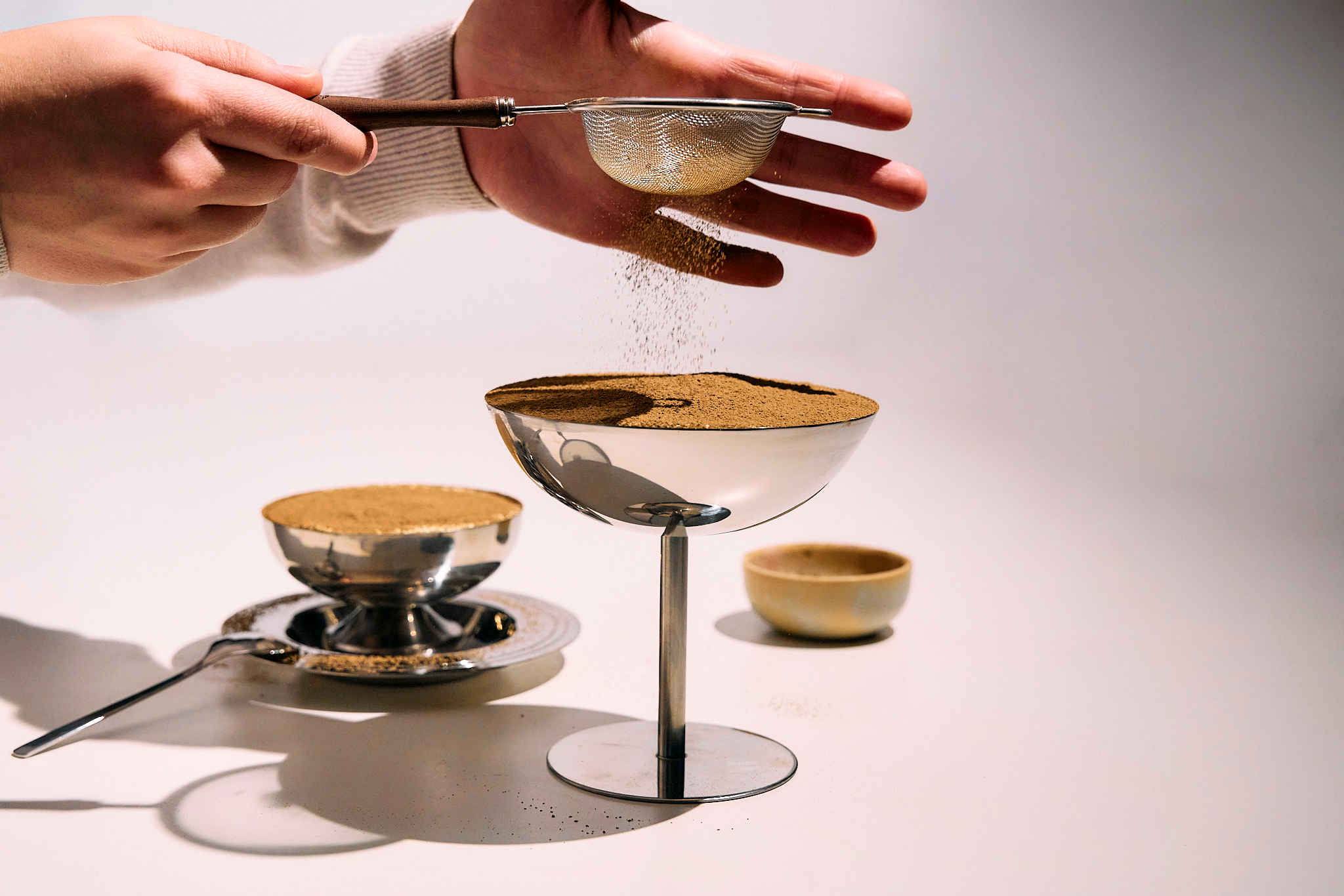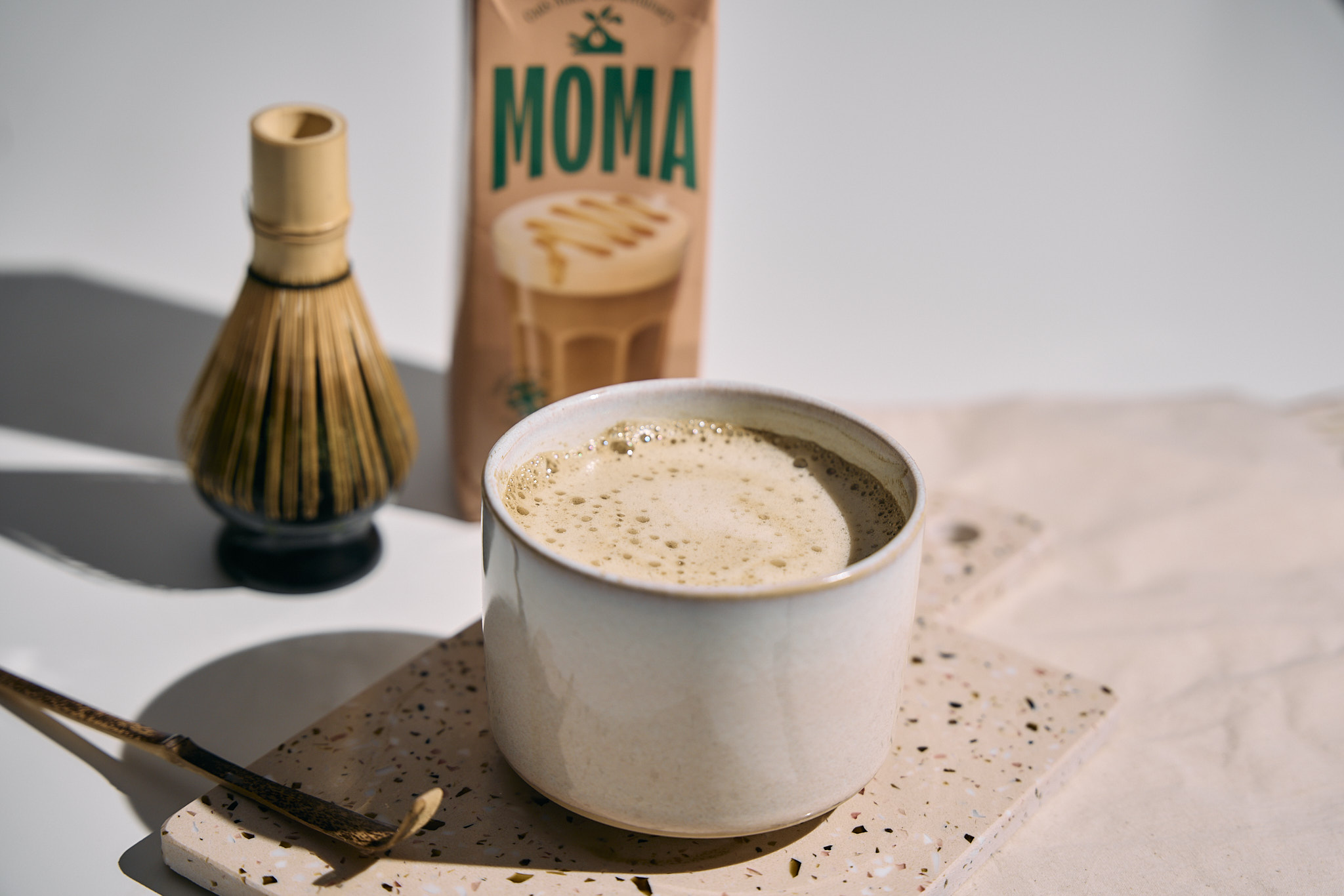Most of us, at least a few times a month, experience a state in which we feel that we won’t make it to the end of the day without a cup of strong coffee. Coffee rituals are an integral part of mental work, but also an important part of hanging out with friends; that’s why we are accustomed to regular doses of caffeine and often need more and more to achieve the desired effect. Is there an alternative way to stimulate yourself and increase your energy levels? Read the article and find out about the effects that both – coffee & matcha – have on the body.

Origin and production method
The process of making coffee is fairly well known: coffee plants are grown in South America, Africa and Asia, from where the ready-to-process beans are exported around the world. The taste of coffee depends largely on the roasting process the beans undergo after harvesting, sorting and drying.
However, not everyone knows that matcha is a special variety of green tea. It is prepared using powdered tea leaves, which give the drink its characteristic intense green color. Matcha tea is grown by the method of shading the bushes, which allows the plants to produce more micronutrients. The best quality matcha is produced in Japan, as the conditions there are extremely favorable.
What contains more caffeine: matcha or coffee?
It is common to speak of caffeine in coffee and theine in tea, but they are actually the same chemical compound with stimulating properties.
The caffeine content of coffee depends on its form; a teaspoon of ground coffee is about 50 mg of caffeine, while a teaspoon of instant coffee is about 30 mg. After drinking coffee, we feel a fairly strong stimulation, which, however, does not last too long, especially if we drink it regularly.
One serving of matcha contains 68 mg of caffeine. The other important ingredient in this green tea variety is L-theanine, thanks to which caffeine is released into the body gradually, and its effects are felt as more stable. When drinking matcha, one also does not experience a sudden drop in energy after the stimulation stage is over. Matcha drinkers primarily speak of increased levels of focus and productivity that last for several hours.
Does coffee dehydrate you?
Despite popular beliefs, drinking coffee is not dehydrating if you take proper care of your fluid intake throughout the day. Beverages that contain caffeine cause a diuretic effect primarily in people who do not drink them on a daily basis. If one drinks coffee or matcha regularly and hydrates properly, it does not cause discomfort to the body.
Coffee also does not leach magnesium. Matcha, on the other hand, is a rich source of catechins, which are extremely powerful antioxidants that help neutralize free radicals. Catechins also have an antiviral effect, supporting our immunity. Another important ingredient is chlorophyll, of which matcha tea leaves produce an especially high amount due to shade-growing. Chlorophyll helps cleanse the body of toxins. Other useful micronutrients in matcha tea include vitamin A, vitamin C, iron and potassium.
Many people cannot imagine giving up coffee and its stimulating properties. At the same time, the rapid release of caffeine has a short-lived effect and often leaves you feeling tired. It is worth trying out the alternative, such as matcha green tea; if not for the positive effect on concentration, then for its other benefits – first and foremost, its antioxidant effect.



